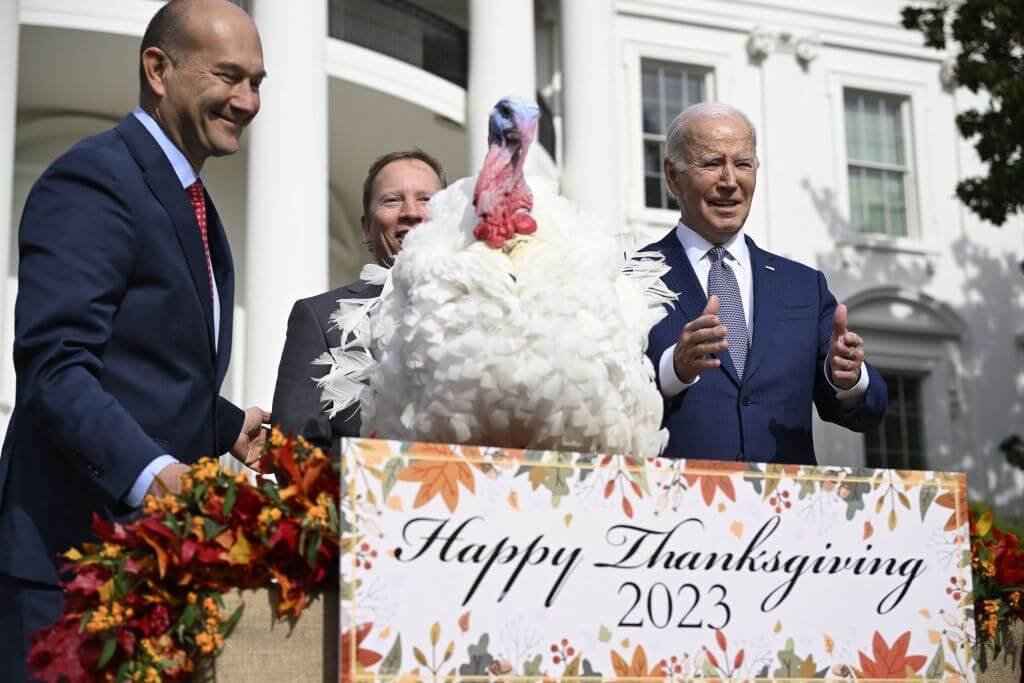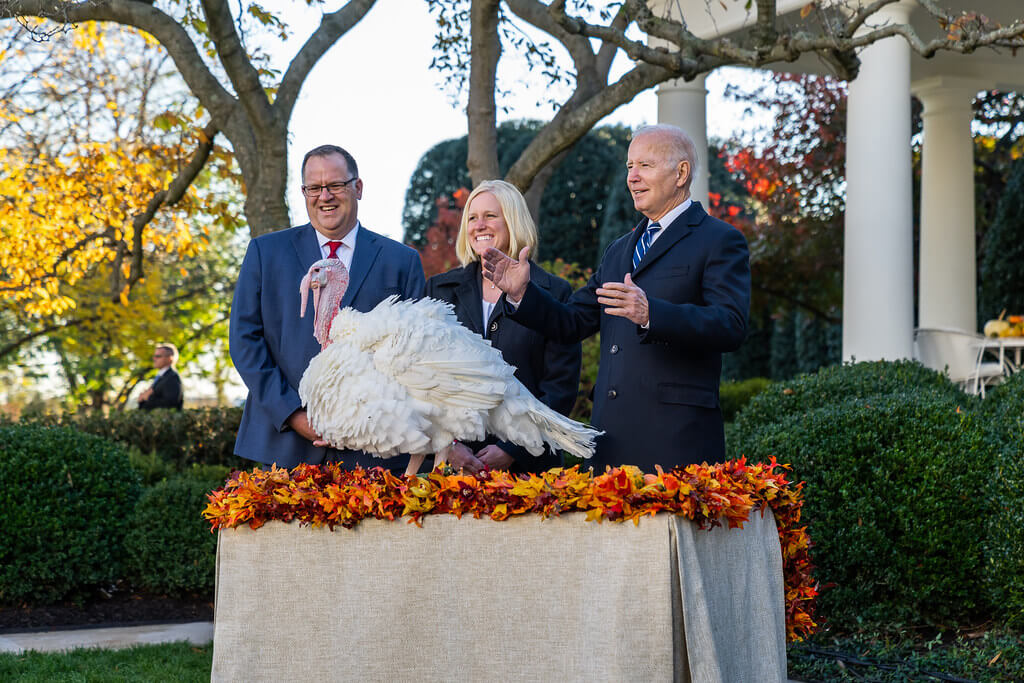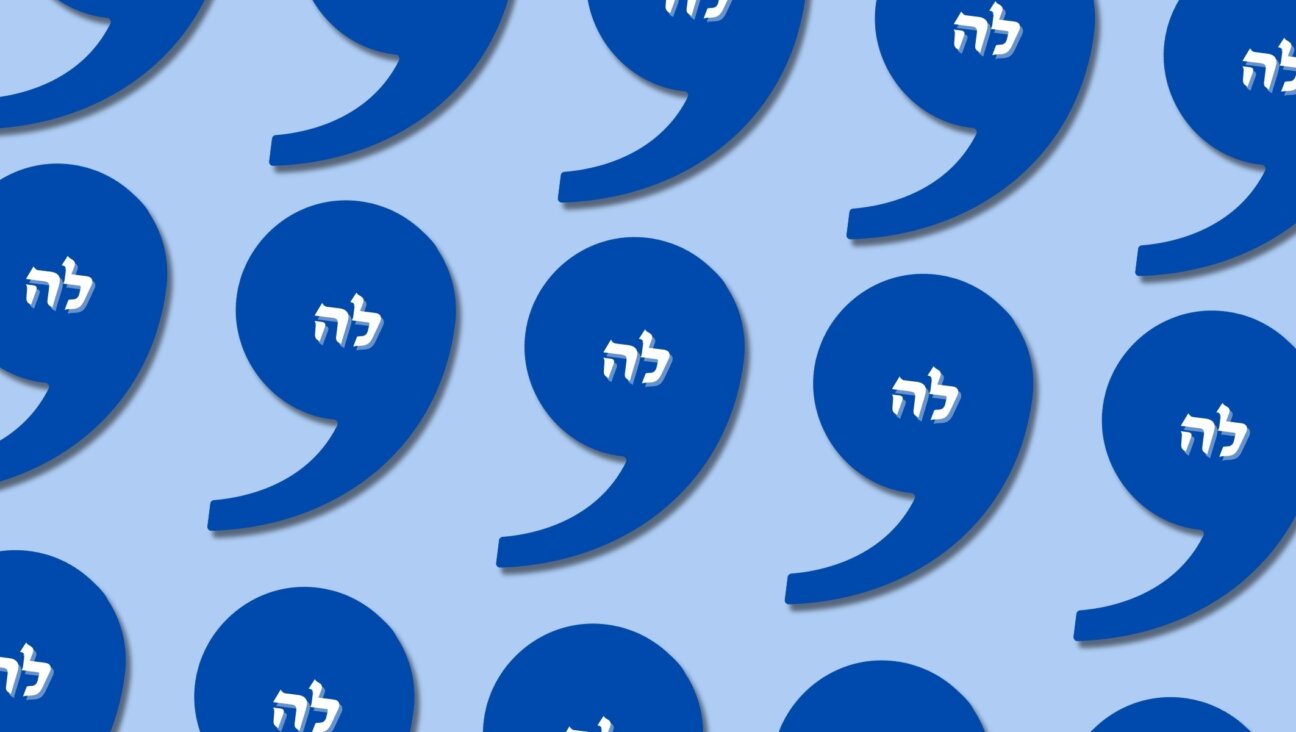3 rabbis talk turkey as Biden prepares for annual pardon
What we can learn about justice and mercy from the annual forgiveness of fowl crimes

President Joe Biden pardons the national Thanksgiving turkey, Liberty, during a pardoning ceremony at the White House in Washington, DC on November 20, 2023. Photo by Getty Images
When President Joe Biden pardons a pair of turkeys on Monday, just days before Thanksgiving, he’ll be participating in the long Jewish tradition of giving animals their day in court.
While Jewish law does not explicitly describe appropriate punishments for fowl play, Rabbi Joe Hample of Morgantown, West Virginia’s Tree of Life Congregation, noted that the Torah does prescribe remedies for crimes committed by wildlife.
“Let’s say an ox kills someone, that ox must be stoned to death, that’s in the Torah,” he said.
The Talmud takes the matter even further, teaching that context must be considered.
“If the ox killed someone by mistake, that’s different than if the ox killed someone on purpose,” Hample continued. “Or if the ox was scratching its back on a fence and the fence fell over and killed someone. Is the ox liable?”
The White House turkey-pardoning ritual, though a fairly recent invention, taps into timeless Jewish values, Hample and several other rabbis interviewed by the Forward posited.

While turkeys have been gifted to the White House for over a century, John Kennedy is credited with the first pardon, saying of one bird that had been sent for his dining enjoyment, “We’ll let this one grow.” The pardoning ceremony didn’t become an annual tradition until 1981, under Ronald Reagan.
In a certain light, said Rabbi Joshua Hammerman, the turkey pardon can be seen as a reverse form of kapparot, the Yom Kippur ritual in which a fowl, usually a chicken, is waved over one’s head before being slaughtered and given to the poor to eat. In this case, instead of being sacrificed as a mark of atonement, the turkeys are being given a second chance at life, which is an act of charity.
“We should be providing, you know, turkey dinners for people who are poor,” said Hammerman, who is author of the book “Mensch Marks: Life Lessons of a Human Rabbi.” “So this is a reminder not just to be merciful to the animal, but to human beings as well.”
Presidential clemency aside, Thanksgiving has long drawn from Jewish tradition. One theory, which appears to have at least some basis in historic fact, surmises that the pious Pilgrims, well-versed in the Bible, were well aware of Sukkot and possibly inspired by it when they decided to hold their own harvest festival.
However, turkey’s iconic place as the centerpiece of the meal has proved controversial for some Jews. Hammerman wrote an article in 2011 questioning whether the bird qualifies as kosher. As a vegetarian, he feels that “every turkey should be pardoned.”
Rabbi Michael Singer, who chairs the Rabbinical Association’s Social Justice Commission, similarly questions the pardoned turkeys’ status as possible food. He suggests that when Jews watch these turkeys get their brief time in the limelight, they should consider the ethics of their own eating habits, given how poorly farm animals and the people who raise and slaughter them are often treated.
“The word ‘kosher’ means fit or proper. It doesn’t just mean is the animal or permitted animal to eat or not,” he said. “It also deals with the workers, how they’re treated, whether they’re paid, whether they’re safe, whether they’re making a fair wage.”
As for the two turkeys that President Biden will pardon, little is known about them. According to a White House statement, they are from Monroe, North Carolina. But their crimes have not been made public, which Hample said makes it hard to say whether they have earned the privilege of fleeing the coop.
“I don’t know what the turkey has been forgiven for,” he admitted. “That turkey has been presumably sentenced to death for some nameless crime. What capital crime could a turkey commit? I guess it could peck somebody’s eye out.”






















